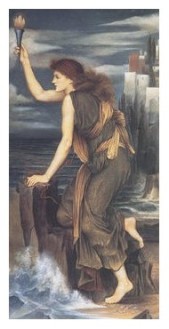
Miss Victoria Mayhew commented:
Here in Vintesse, as in all Aristasia Pura, we do constantly strive for the higher realm. I think here we are closer to the realm of the Idea – logos, if some of the ladies here prefer that term – than the inhabitants of Telluria are. Having lived for a little while in Telluria
with my cousin Sarah, I cannot help but make that observation. However, I fear that we fortunate maids of Aristasia are still trapped in the cave, watching shadows dance on the wall.
In the Golden Age, we were in the realm of the Ideal, were we not? Then came the Silver Age of Heroines; what we might think of as “once upon a time.” Some parts of the Far East are surely still thus, although I have never travelled that far and know of no maids from those reaches. My theory is that Aristasia Pura corresponds to the Age of Bronze, when things are still sound although not quite heroic…but Telluria is in the Age of Lead, and is fundamentally shaky and corrupt, in much need of a cleansing and a tearing down for rebuilding. The Wheel turns; all things pass, even the horrors of the Pit.
Miss Alice Trent answered:
Thank you, Miss Mayhew, for your very pertinent comments – as you suggest, phrases like “once upon a time” indicate that a story (normally a traditional fairy tale) is set in “that time”, or “nowever” – in the time that transcends time, but which also may for us be represented by earlier and purer Ages.
Aristasia’s Iron Age is no doubt nearer to the Bronze Age in Telluria, though such things as the development of individualism indicate that it is indeed an Iron Age. Maids in the East do have a mentality closer to that of earlier Ages and are less affected by the changes of the Iron Age which are most typified in the West, which, being the Land of the Setting Sun, will always tend to come into its own in the last Age.
Where Eastern people accept the sovereignty of the West, it is not because they believe that the ways of the West are inherently superior, but because they acknowledge that the time of the West has come and that its sovereignty is a symbolic necessity for this age – a concession more easily granted since the West in Aristasia makes no attempt to interfere with the ways of the East.
Comments Off on Once upon a Time